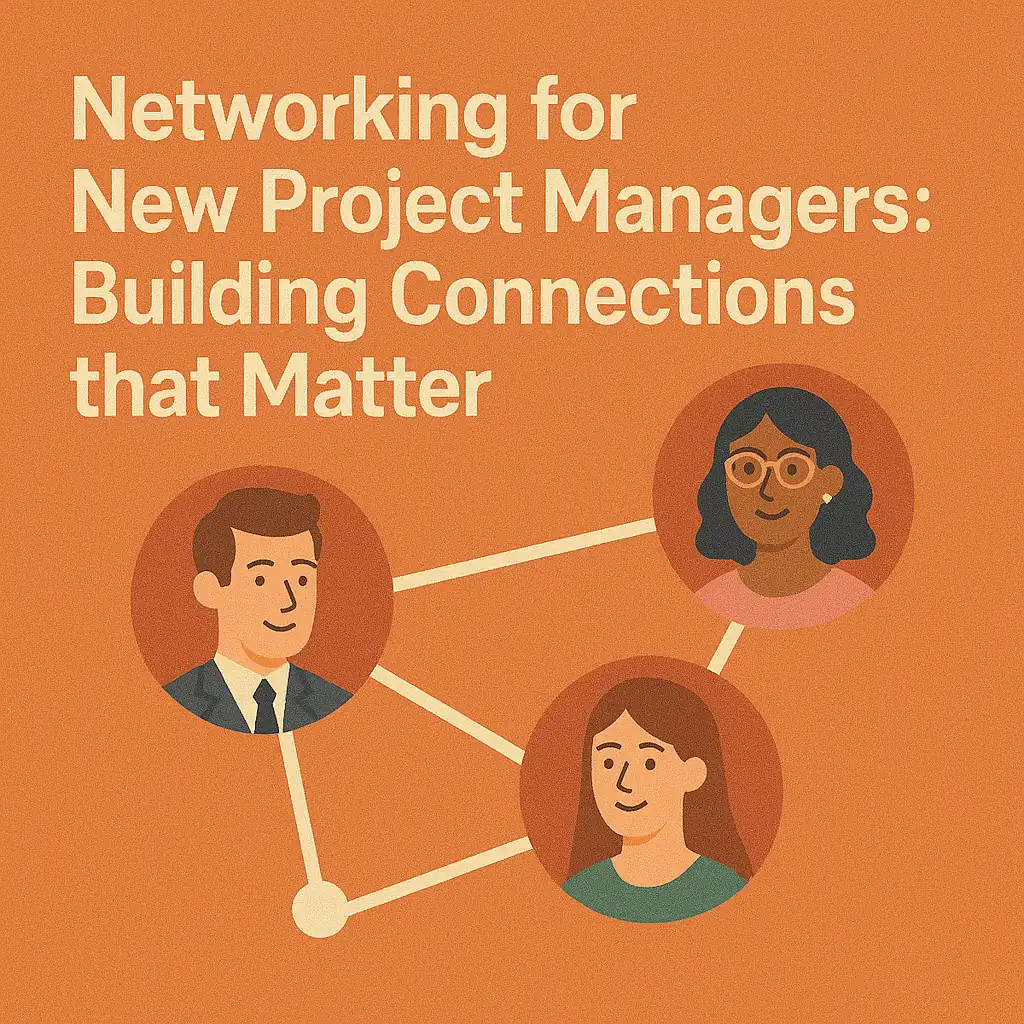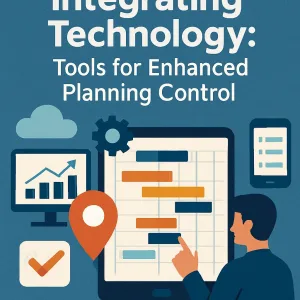Introduction
Networking is a vital component in project management, particularly for entry-level professionals and recent graduates. In this context, networking refers to the process of establishing and nurturing professional relationships that can lead to mutual benefits, such as job opportunities, mentorship, and knowledge sharing. For new project managers, effective networking can significantly enhance their career trajectory and open doors to various opportunities within the industry.
The importance of networking in project management cannot be overstated. It serves as a gateway to accessing job opportunities, professional connections, and valuable insights that can aid in career advancement. Research indicates that a substantial percentage of job openings are filled through networking, with approximately 85% of jobs being filled via personal connections, and many positions remaining unadvertised. This underscores the necessity for entry-level project managers to actively engage in networking to bolster their career prospects and gain a competitive edge in the job market [5][10].
However, entry-level project managers often face unique challenges when it comes to building connections. Many may feel intimidated by more experienced professionals or unsure of how to initiate conversations in networking settings. Additionally, the informal nature of networking can be daunting, as it requires strong interpersonal skills and an understanding of workplace dynamics [4][13]. Despite these challenges, overcoming them is crucial for new project managers, as establishing a robust professional network can lead to mentorship opportunities, collaboration on projects, and access to industry insights that are essential for career growth [3][15].
The Value of Networking for New Project Managers
Networking is an essential skill for new project managers, offering numerous benefits that can significantly impact their careers. As entry-level professionals and recent graduates navigate the complexities of the project management field, building a robust network can open doors to opportunities and provide invaluable resources. Here are some key points highlighting the importance of networking for new project managers:
- Access to Job Opportunities and Mentorship: Networking is a powerful tool for discovering job openings, as a significant percentage of positions are filled through personal connections rather than traditional job postings. In fact, approximately 85% of jobs are filled via networking, and 70% of jobs are never publicly advertised [10]. By engaging with industry professionals, new project managers can tap into hidden job markets and gain access to mentorship opportunities that can guide their career development.
- Insights into the Industry and Best Practices: Establishing connections with experienced project managers and industry peers allows newcomers to gain insights into current trends, challenges, and best practices within the field. Networking provides a platform for sharing knowledge and experiences, which can enhance a new project manager’s understanding of effective project management strategies and methodologies [12]. This exchange of information is crucial for staying up-to-date with industry standards and improving one’s skill set.
- Gaining Visibility and Credibility: Building a professional network helps new project managers establish their presence in the industry. By attending networking events, participating in discussions, and engaging with others on platforms like LinkedIn, they can enhance their visibility and credibility among peers and potential employers [8]. A strong network not only showcases a project manager’s commitment to their profession but also positions them as a knowledgeable and reliable resource within their community.
Identifying Networking Opportunities
For entry-level project managers, establishing a robust professional network is crucial for career advancement and gaining insights into the industry. Here are several avenues to explore for networking opportunities:
Online Networking Platforms:
- LinkedIn: This is a primary platform for professionals to connect, share insights, and discover job opportunities. Entry-level project managers can join relevant groups, participate in discussions, and connect with industry leaders to enhance their visibility and network.
- Industry Forums: Participating in forums dedicated to project management can provide valuable insights and connections. Engaging in discussions on platforms like Reddit or specialized project management forums can help build relationships with peers and experienced professionals.
Professional Organizations and Associations:
- Project Management Institute (PMI): Joining PMI or similar organizations offers access to a wealth of resources, including networking events, webinars, and local chapters. These organizations often host events that allow members to meet and collaborate with other project management professionals, which is invaluable for newcomers to the field.
- Local PMI Chapters: Actively participating in local chapters can provide opportunities to meet other project managers, attend workshops, and engage in community service projects, all of which can enhance networking efforts.
Conferences, Workshops, and Local Meetups:
- Conferences: Attending industry conferences is an excellent way to meet professionals, learn about the latest trends, and share experiences. These events often feature networking sessions specifically designed for attendees to connect.
- Workshops: Participating in workshops not only helps in skill development but also provides a platform to meet fellow project managers and industry experts. These smaller, focused settings can foster deeper connections.
- Local Meetups: Look for local meetups or networking events in your area. Websites like Meetup.com often list gatherings for project management professionals, providing a more informal setting to connect with others in the field.
By leveraging these networking opportunities, entry-level project managers can build meaningful connections that will support their career growth and enhance their understanding of the project management landscape. Networking is not just about collecting contacts; it’s about fostering genuine relationships that can lead to mentorship, collaboration, and new job opportunities.
Building Meaningful Connections
Networking is a vital component for entry-level project managers looking to establish themselves in the field. Building genuine and meaningful connections can significantly enhance career opportunities and provide valuable insights into the industry. Here are some strategies to help new project managers cultivate their professional relationships effectively.
The Importance of Being Genuine and Approachable
Authenticity is key. Being genuine in your interactions fosters trust and encourages others to engage with you. Here are some ways to ensure you come across as approachable:
- Be Yourself: Authenticity resonates with people. Share your interests and experiences, which can create common ground for conversation.
- Active Listening: Show genuine interest in what others have to say. This not only helps in building rapport but also allows you to learn from their experiences and insights [11].
Tips for Initiating Conversations
Starting a conversation can be daunting, especially in professional settings. Here are some effective strategies to break the ice:
- Elevator Pitch: Prepare a concise and engaging elevator pitch that summarizes who you are, what you do, and what you are passionate about in project management. This should be brief enough to deliver in the time it takes to ride an elevator, typically around 30 seconds to a minute [5].
- Ask Open-Ended Questions: Encourage dialogue by asking questions that require more than a yes or no answer. For example, inquire about their experiences in project management or their thoughts on industry trends [11].
- Utilize Networking Events: Attend industry events, workshops, and seminars where you can meet professionals in your field. These settings provide a natural environment for initiating conversations and expanding your network [11][9].
The Need for Follow-Ups and Maintaining Relationships
Networking does not end after the initial conversation; it requires ongoing effort to nurture those connections. Here are some strategies for maintaining relationships:
- Follow-Up: After meeting someone, send a brief follow-up message expressing your appreciation for the conversation. Mention something specific you discussed to personalize your message [14].
- Stay Engaged: Share relevant articles, insights, or updates with your contacts. This keeps you on their radar and demonstrates your continued interest in the field [8].
- Schedule Regular Check-Ins: Make it a habit to reach out to your connections periodically. This could be as simple as a quick message to see how they are doing or to share a relevant industry development [14].
By focusing on these strategies, entry-level project managers can build a robust professional network that not only supports their career growth but also enriches their understanding of the project management landscape. Networking is not just about collecting contacts; it’s about creating a community of support and shared knowledge that can propel your career forward.
Leveraging Social Media for Networking
Networking is not just a beneficial skill; it is essential for career advancement, especially for entry-level professionals and recent graduates. Social media platforms have emerged as powerful tools for building connections and enhancing visibility in the industry. Here are some key points to consider when leveraging social media for networking in project management.
Key Social Media Platforms
- LinkedIn: This platform is the cornerstone of professional networking. It allows project managers to connect with industry professionals, join relevant groups, and participate in discussions. By sharing insightful content and engaging with others, you can enhance your visibility and credibility within the project management community [12].
- Twitter: Often overlooked, Twitter can be a valuable resource for real-time updates and industry news. Following project management hashtags and engaging with thought leaders can help you stay informed and connected [9].
Importance of Creating a Professional Online Presence
Establishing a professional online presence is crucial for new project managers. This involves:
- Profile Optimization: Ensure your LinkedIn profile is complete with a professional photo, a compelling summary, and detailed descriptions of your skills and experiences. This not only makes you more approachable but also increases your chances of being discovered by recruiters and industry peers [12].
- Consistent Activity: Regularly update your profiles with relevant content, such as articles, project updates, or insights from industry events. This demonstrates your engagement and commitment to the field, making you more attractive to potential connections [12].
Engaging with Industry Content and Connecting with Thought Leaders
To effectively network on social media, consider the following strategies:
- Follow Industry Leaders: Identify and follow thought leaders in project management. Engage with their content by liking, sharing, and commenting on their posts. This not only helps you learn from their expertise but also increases your visibility among their followers [10].
- Join Relevant Groups: Participate in LinkedIn groups focused on project management. These groups provide a platform for discussions, sharing resources, and connecting with like-minded professionals. Being active in these communities can lead to valuable connections and opportunities [12].
- Share Your Insights: Don’t hesitate to share your own thoughts and experiences related to project management. Writing articles or posts about your learning journey, challenges faced, or successful projects can attract attention and foster connections with others who share similar interests [15].
By strategically leveraging social media, entry-level project managers can build a robust network that not only supports their career growth but also enriches their understanding of the industry. Networking is a continuous process, and with the right approach, social media can be a powerful ally in your professional journey.
Overcoming Networking Challenges
Networking is a crucial skill for new project managers, yet many face significant challenges when trying to build connections in the field. Here are some common obstacles and strategies to overcome them:
Feelings of Intimidation and Imposter Syndrome
Many entry-level project managers experience feelings of intimidation, especially when interacting with more experienced professionals. This often stems from imposter syndrome, where individuals doubt their abilities and feel like frauds despite evidence of their competence. Recognizing that these feelings are common can help alleviate some of the pressure. It’s important to remember that most professionals have faced similar challenges at some point in their careers, and acknowledging this can foster a sense of belonging and reduce anxiety about networking situations [1][3].
Strategies for Overcoming Shyness and Anxiety
- Start Small: Begin by attending smaller networking events or joining local project management groups. This can create a more comfortable environment for initiating conversations and building confidence.
- Prepare Talking Points: Before attending events, prepare a few talking points or questions to facilitate discussions. This can help ease anxiety and provide a structure for conversations.
- Practice Active Listening: Focus on listening to others rather than worrying about what to say next. This not only takes the pressure off but also helps in building genuine connections.
- Set Achievable Goals: Aim to meet a specific number of new contacts at each event. Setting small, achievable goals can make networking feel less overwhelming and more rewarding.
- Leverage Online Platforms: Utilize social media platforms like LinkedIn to connect with professionals in the field. Engaging in online discussions can serve as a less intimidating way to network and build relationships [2][10].
Embracing Feedback and Learning from Networking Experiences
Networking is a learning process, and it’s essential to embrace feedback from interactions. After networking events, reflect on what went well and what could be improved. This practice not only enhances future networking efforts but also builds resilience.
- Seek Constructive Criticism: Don’t hesitate to ask for feedback from peers or mentors about your networking approach. Constructive criticism can provide valuable insights and help refine your skills.
- Learn from Each Experience: Each networking opportunity is a chance to learn. Whether a conversation goes well or not, consider what you can take away from the experience to improve your future interactions.
By addressing these challenges head-on, new project managers can develop effective networking skills that will serve them throughout their careers. Building a strong professional network is not just about making connections; it’s about creating a support system that can provide guidance, opportunities, and collaboration in the ever-evolving field of project management [11][12].
The Long-Term Benefits of Networking
Networking is an essential component of career development, particularly for entry-level project managers. Establishing a robust professional network can yield significant long-term benefits that extend well beyond immediate job opportunities. Here are some key points to consider:
- Building Lasting Professional Relationships: Networking is not just about making contacts; it’s about cultivating relationships that can provide support and guidance throughout your career. By engaging with peers, mentors, and industry leaders, new project managers can create a network that offers valuable insights and resources over time. These connections can lead to collaborative opportunities, referrals, and partnerships that enhance career growth [2][11].
- Success Stories of Networking: Many successful project managers attribute their career advancements to the relationships they built early on. For instance, a project manager who attended industry conferences and actively participated in networking events may have met a mentor who later provided a pivotal job opportunity. Such stories highlight how networking can open doors and create pathways to success that might not have been accessible otherwise [3][10].
- Encouraging Continuous Networking: Networking should not be viewed as a one-time effort but rather as an ongoing process. Regularly attending industry events, engaging in professional organizations, and maintaining contact with former colleagues can keep your network vibrant and beneficial. Continuous networking allows project managers to stay informed about industry trends, share experiences, and gain new insights that can enhance their project management skills and knowledge [8][12].
Conclusion
Networking is not just a beneficial activity; it is a crucial component for success, especially for entry-level professionals and recent graduates. Building a robust network can open doors to opportunities, provide valuable insights, and foster relationships that can significantly enhance your career trajectory. Here are the key takeaways regarding the importance of networking in project management:
- Creating Possibilities: Networking is about forming and cultivating relationships that can help not only yourself but also those you meet. This mutual support can lead to collaborative opportunities and shared knowledge, which are essential in the dynamic field of project management [1][2].
- Staying Informed: Engaging with industry professionals allows you to stay updated on the latest trends and developments. This knowledge is vital for remaining competitive and relevant in your field [4][8].
- Building Credibility: As you connect with others in the industry, you gain credibility, which is particularly important when seeking larger roles or leading multiple teams. Your network can serve as a testament to your capabilities and potential [9].
To effectively build your network, consider taking the following actionable steps:
- Attend Industry Events: Participate in conferences, workshops, and seminars related to project management. These events are excellent opportunities to meet professionals and learn from their experiences.
- Leverage Online Platforms: Utilize social media and professional networking sites like LinkedIn to connect with peers, mentors, and industry leaders. Engage in discussions and share relevant content to increase your visibility.
- Join Professional Organizations: Becoming a member of project management associations can provide access to resources, training, and networking opportunities that are invaluable for your career growth.
Find out more about Shaun Stoltz https://www.shaunstoltz.com/about/.
This post was written by an AI and reviewed/edited by a human.



